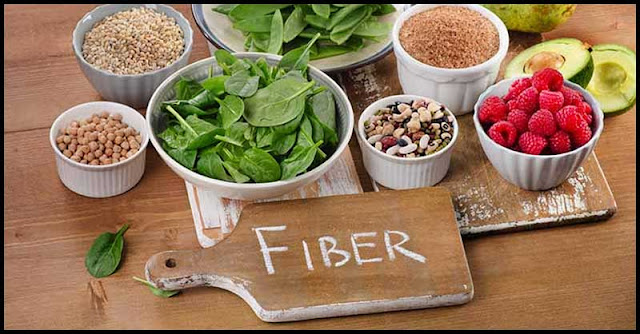Fiber is an essential nutrient that must be added in your diet. It can be found in legumes, fruits, vegetables, and whole grains.
A number of researches have shown that adequate fiber intake may benefit your digestion and is necessary for optimal health as it helps reduce your risk of various disease.
There are two broad categories of fiber based on its water solubility.
Soluble Fiber
Once it enters the stomach and intestines, soluble fiber dissolves in water and gastrointestinal fluids then it is transformed into a gel-like substance, which is digested by bacteria in the large intestine.
Some of the health benefits you can obtain from soluble fiber are as follows:
- Lowers cholesterol level or the amount of free cholesterol in the blood
- Stabilizes blood sugar levels
- Reducing the risk of cardiovascular disease and circulatory condition
- Optimizes the function of the friendly bacteria in the gut
- Help you feel full for a longer period of time, thereby making it beneficial for those who wanted to lose some extra pounds.
Researchers have found that consumption of 10-30 grams of soluble fiber can reduce LDL by about 10%.
Furthermore, there were 67 different studies showing how a fiber-rich diet can help lower LDL by 2.2 milligrams per deciliter (mg/dl). This only means that by adding 10 grams of baked beans, a person can possibly see a drop of 20 points.
Insoluble Fiber
This type of fiber can be found in foods such as fruits and peas. It remains more or less unchanged as it moves through the digestive tract. It is not dissolved in water or gastrointestinal fluids.
Some of the health benefits you can obtain from soluble fiber are as follows:
Prevents constipation – it speeds up movement and processing of waste thereby helping prevent gastrointestinal blockage or reducing bowel movements.
Lowering the risk of diverticular disease – insoluble fiber helps reduce a person’s risk of developing small folds and hemorrhoids in the colons since it prevents constipation and intestinal blockages.
Here are some of the best fiber rich-food that you can add in your diet:
Broccoli
Enjoy 5.2 grams of fiber with every cup of this cruciferous vegetable.
Avocados
This fruit is famously known for its healthy fat content. Aside from this, it is also a good source of fiber. In fact, half an avocado has 7 grams of fiber.
Prunes (Dried Plums)
Suffering from constipation? Prunes are one of the best foods for you. Dried prunes can give you 12 grams of fiber per cup.
Bananas
Aside from being high in potassium, one medium banana can also help you get 3.1 grams of your fiber goals.
Dried Peas and Beans
Enjoy 9 grams of fiber per cup when you consume these great affordable ingredients. These may include dried limas, baked beans, kidney beans, pinto beans, split peas, garbanzos, and black beans.
Artichokes
This veggie taste great in pasta, and dips. As compared to other vegetables, artichokes are loaded with more fiber – one artichoke has about 10 grams of fiber.
Pears
Consumption of a medium-sized pear can give your body with 6 grams of fiber. This provides your body with 24 percent of your recommended daily value for fiber. Its skin is where the majority of the fiber is present.
Oranges
In addition to its vitamin C content, one medium orange also contain 3.1 grams of healthy fiber.









